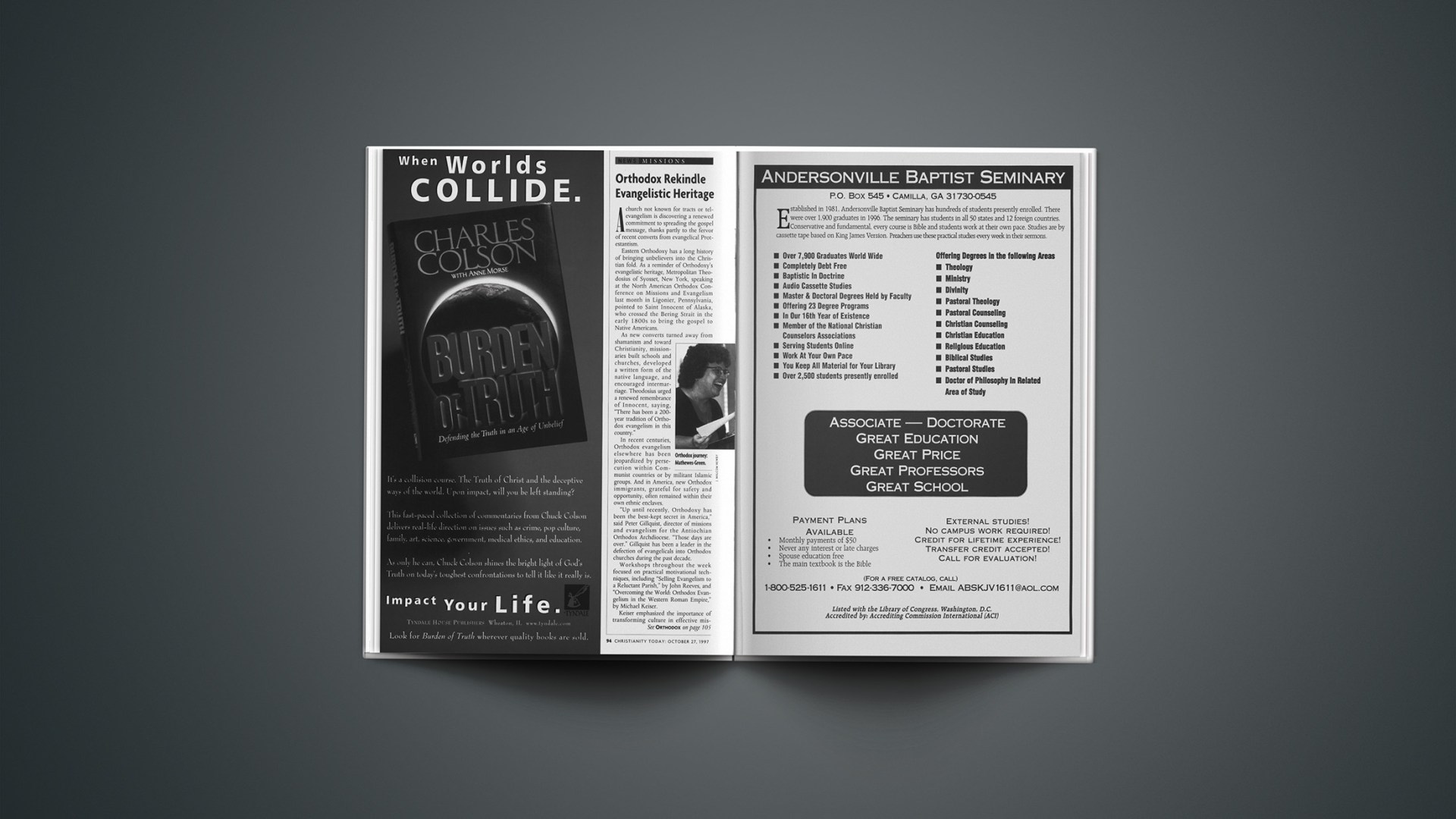A church not known for tracts or tel-evangelism is discovering a renewed commitment to spreading the gospel message, thanks partly to the fervor of recent converts from evangelical Protestantism.
Eastern Orthodoxy has a long history of bringing unbelievers into the Christian fold. As a reminder of Orthodoxy’s evangelistic heritage, Metropolitan Theodosius of Syosset, New York, speaking at the North American Orthodox Conference on Missions and Evangelism last month in Ligonier, Pennsylvania, pointed to Saint Innocent of Alaska, who crossed the Bering Strait in the early 1800s to bring the gospel to Native Americans.
As new converts turned away from shamanism and toward Christianity, missionaries built schools and churches, developed a written form of the native language, and encouraged intermarriage. Theodosius urged a renewed remembrance of Innocent, saying, “There has been a 200-year tradition of Orthodox evangelism in this country.”
In recent centuries, Orthodox evangelism elsewhere has been jeopardized by persecution within Communist countries or by militant Islamic groups. And in America, new Orthodox immigrants, grateful for safety and opportunity, often remained within their own ethnic enclaves.
“Up until recently, Orthodoxy has been the best-kept secret in America,” said Peter Gillquist, director of missions and evangelism for the Antiochian Orthodox Archdiocese. “Those days are over.” Gillquist has been a leader in the defection of evangelicals into Orthodox churches during the past decade.
Workshops throughout the week focused on practical motivational techniques, including “Selling Evangelism to a Reluctant Parish,” by John Reeves, and “Overcoming the World: Orthodox Evangelism in the Western Roman Empire,” by Michael Keiser.
Keiser emphasized the importance of transforming culture in effective missions work. “Capturing the Roman world for Christ took four to five hundred years and involved more than just getting people to accept baptism,” he said. “They not only focused on the process of Christian initiation, but also the transformation of society through worship and engaging the culture in which they lived, rather than running away from it.”
Frederica Mathewes-Green, author of Facing East: A Pilgrim’s Journey into the Mysteries of Orthodoxy (Harper San Francisco, 1997), offered advice on practical evangelism.
“Choose one person and prayerfully seek an opportunity to share your witness,” Mathewes-Green suggested. “Don’t worry if your story seems ordinary; that’s the most useful kind.” She challenged attendees to be courageous in presenting the gospel to a fallen world that could respond with derision, apathy, or persecution.
Copyright © 1997 Christianity Today. Click for reprint information.










